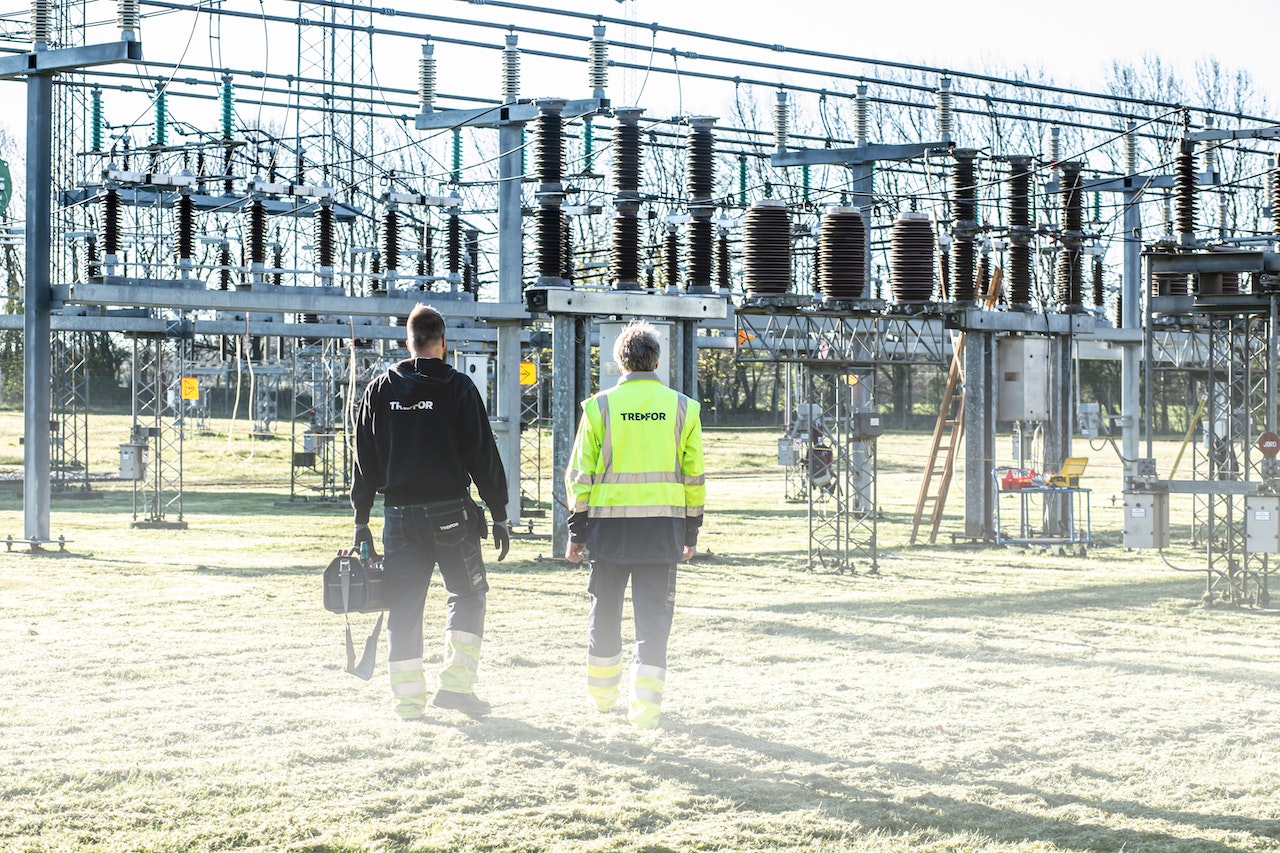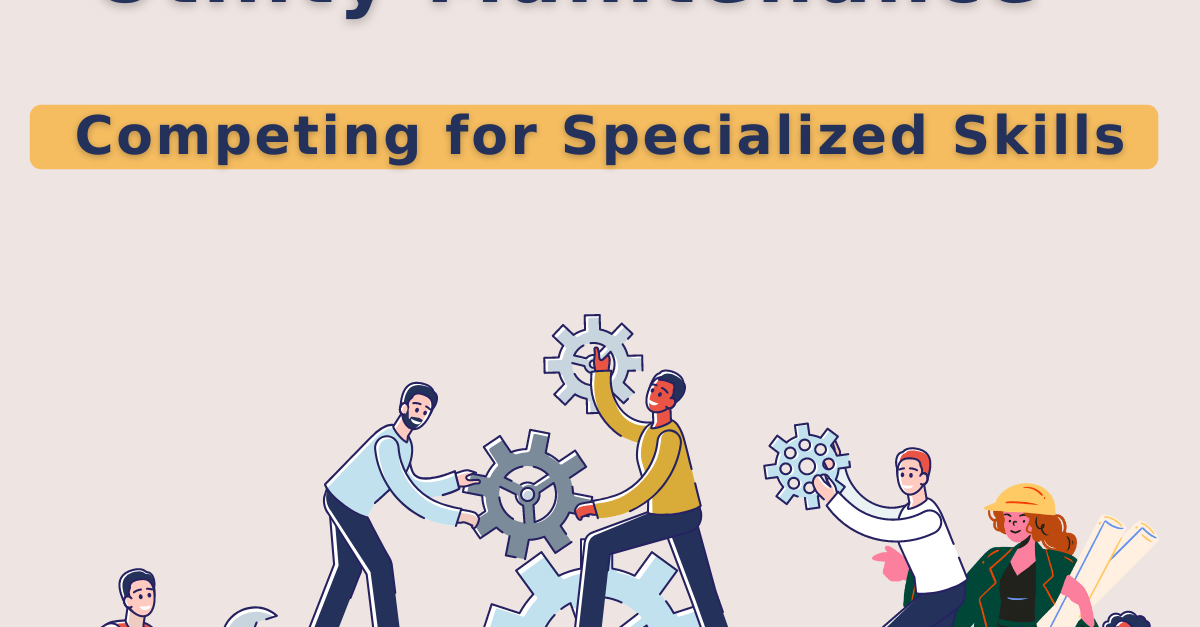
Understanding Asset Aging Mechanisms: Key to Effective Maintenance
June 27, 2023
Power Intelligence and Entergy Collaborate on Solar Farm Risk Mitigation
November 14, 2023In the rapidly evolving utility industry, effective maintenance practices are crucial for ensuring the reliability and longevity of infrastructure assets. However, utility companies face a significant challenge when it comes to acquiring and retaining specialized talent in maintenance roles. The demand for skilled professionals in areas such as electrical engineering, asset management, and data analysis continues to rise, making it increasingly difficult for utilities to compete for these specialized skills. In this article, we will explore the talent challenges faced by utility companies in maintenance roles and discuss strategies to address these challenges.
The Growing Need for Specialized Skills
As utility infrastructure becomes more complex and technology-driven, the need for specialized skills in maintenance becomes paramount. Here are a few key areas where utilities require specialized talent:
1. Electrical Engineering
Skilled electrical engineers and technicians play a critical role in maintaining and optimizing power distribution systems, substations, and other electrical assets. They are responsible for troubleshooting, repairs, and designing efficient electrical networks.
Engineers are specialized in:
- Performing all design work including:
- Distribution and transmission systems
- Substations
- Generation facilities
- Network control and communication systems
- Complex troubleshooting
- Developing programs including:
- Asset Test and Maintenance Plans
- Data and test result analysis
- Load flow studies
- Protection system coordination
Technicians perform most of the hands-on work including:
- Construction of lines and substations
- Apparatus and Equipment maintenance and repair
- Apparatus and Equipment testing and assessment, with the interpretation of routine tests
- Routine troubleshooting
2. Asset Management
Managing a diverse portfolio of assets requires professionals with expertise in asset management. These individuals oversee the lifecycle of utility assets, develop maintenance strategies, and prioritize investment decisions to optimize asset performance.
3. Data Analysis and Predictive Maintenance
The rise of data-driven maintenance practices has created a demand for professionals who can effectively analyze large volumes of data, implement predictive maintenance algorithms, and identify patterns and trends that can optimize maintenance activities.
Challenges in Acquiring and Retaining Specialized Talent
1. Market Competition
The demand for specialized skills in the utility sector is not limited to utilities alone. Other industries, such as technology and renewable energy, also require similar skill sets. As a result, utility companies often find themselves competing with these industries for qualified professionals.
2. Aging Workforce and Knowledge Transfer
The utility industry is experiencing a significant demographic shift, with many experienced professionals reaching retirement age. The loss of institutional knowledge and expertise poses a challenge in transferring critical skills to the next generation of maintenance professionals.
3. Limited Talent Pool
The pool of individuals with specialized skills in utility maintenance is relatively small compared to the demand. This scarcity makes it even more challenging for utilities to attract and retain top talent.
4. Evolving Skill Requirements
Rapid advancements in technology and changing regulatory landscapes necessitate continuous upskilling and adaptation among maintenance professionals. Finding individuals with the right combination of technical expertise and adaptability can be challenging.
Strategies to Address Talent Challenges
1. Building Partnerships
Collaborating with educational institutions, vocational training centers, and industry associations can help utilities establish a pipeline of skilled talent. By participating in curriculum development, internships, and apprenticeship programs, utilities can attract and groom prospective professionals.
2. Workforce Development Programs
Utilities can invest in training and development programs to upskill existing employees and equip them with specialized maintenance knowledge. Providing opportunities for professional growth and career advancement within the organization can help retain valuable talent.
3. Competitive Compensation and Benefits
To attract and retain specialized professionals, utilities must offer competitive compensation packages and benefits. Salary benchmarks, performance-based incentives, and opportunities for career progression can enhance the attractiveness of utility maintenance roles.
4. Embracing Technology
Deploying advanced technologies in maintenance practices can help utilities alleviate the skill gap. Automation, remote monitoring, and predictive maintenance solutions reduce the dependency on manual interventions and allow maintenance teams to focus on complex tasks that require specialized skills.
5. Knowledge Management and Succession Planning
Utilities should implement knowledge management systems to capture and transfer expertise from experienced professionals to new hires. Succession planning initiatives ensure a smooth transition of critical skills and knowledge as the workforce ages.
Acquiring and retaining specialized talent in utility maintenance roles is a significant challenge due to market competition, limited talent pools, and evolving skill requirements. Utilities can overcome these challenges by building partnerships, investing in workforce development programs, offering competitive compensation, embracing technology, and implementing knowledge management and succession planning strategies.
By addressing talent challenges effectively, utility companies can ensure the reliability, efficiency, and longevity of their infrastructure assets, ultimately benefiting customers and the overall sustainability of the utility industry.




